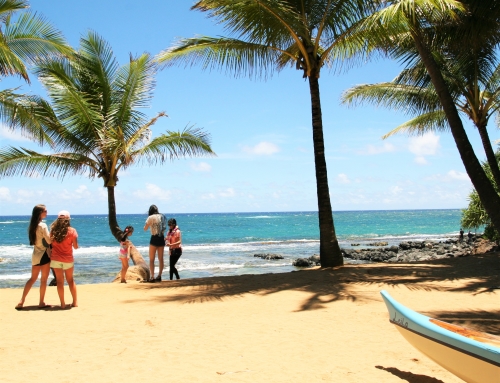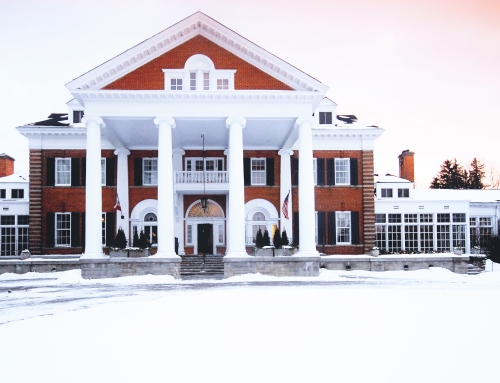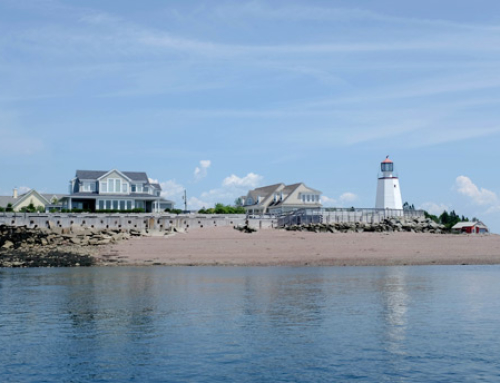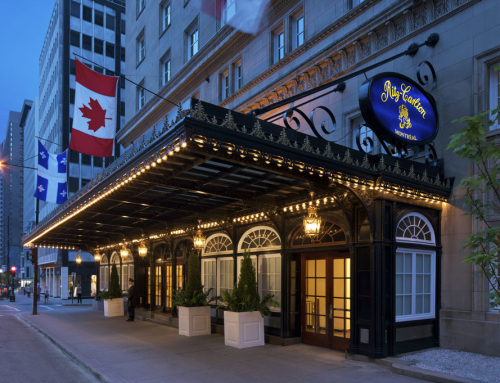The English countryside: it’s the part of English society that I’ve been dying to see. That select place where the “proper” British go to slip into tweed and Hunters, and unwind to the sound of buzzards singing. Of course, like most traveling experiences around England, it’s difficult to plan a quick and easy weekend away to this tranquil piece of country without a car of your own. However, it’s worth accepting the rules of the getaway game in England (multiple train/bus/taxi rides) to make it to the countryside — Devon, in my case. Once there, surrounded by its acres of green and ancient moorlands, the trek seems but a hop, skip and a jump away from central London. Worthy of any and all travelers’ bucket lists, this tucked away plot of Southern England is a breathtaking embodiment of heritage. And as such, it seems only fitting that it should also be the home of the region’s impressive Bovey Castle (pronounced Buvy to the North American ear), a magnificent hideaway seeped in English history and tradition.
For the wealthiest of Castle-goers (they do exist), the hotel recommends a helicopter to avoid the windy country road into Dartmoor. For those without a chopper, the train from London (a good solid two hours at high speed) is your best bet, as there are no airports in the area. Then comes the 45-minute country bus into the nearby town of Moretonhampstead, a piece of country so tranquil and beautiful that any irritation you may have built up over the long journey to your destination will dissolve upon entering the scenery. Remaining is the distance from here to the castle doorstep. Alternatively, as the Castle hotelier I spoke with the day before my own journey suggested, one can take a taxi from the closest train station in the city of Exeter direct to the estate. If like me, you want to keep costs low and would rather opt for the bus route, note buses are infrequent, and that you will be dropped off within 2 km of the castle.
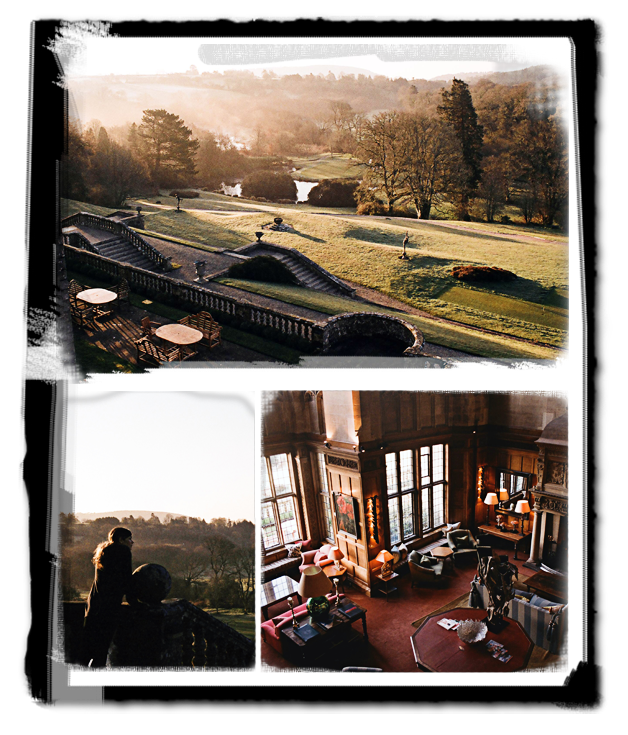
In my experience, motion sickness is fellow to all ancient English country roads; come prepared with Gravol. Comfort is found in the view of endless lush green fields, farm life and high tufts of vines — the sum view is a natural sedative for even the wildest of stomachs. Moretonhampstead, where I voyaged, is a three road town with thatched roofs and a local pub, surrounded by field upon field, each one peppered with horse and sheep. Upon arriving, I’m welcomed by passing locals offering directions, spotting my unfamiliarity with their land of yore.
The castle is near. I walk up a hill to another village of North Bovey, an even smaller hamlet near the back entrance of the castle, and then I see it.
The country house hotel on the Dartmoor moorland appears as a grand spectacle of countryside, encircled by an 18-hole championship golf course, designed in 1926 by British Architect John F. Abercromby. Not the reason for my journey, but of significance for golf enthusiasts.
The surrounding Dartmoor National Park shows no sign of civilization in any direction. The desolate landscape may be familiar to cinephiles, who would recognize it as a location in Steven Spielberg’s Oscar-winning film, War Horse. I can assure you as someone who has been there: very little was altered to procure a turn-of-the-20th-century aesthetic.
Exquisite as Bovey Castle is, there is nothing pretentious about it. Looking past its inherent luxury, one discovers the history of a house that was once a home. It is after all not technically a castle, though passersby would surely beg to differ. Purchased by the Viscount Hambleden from the Earl of Devon in 1890, it wasn’t until the Viscount’s son, Frederick — or Lord Hambleden as he was know to the community — inherited the land that a stately manor house was built as a country retreat for the family. The interior of the home, originally done in an neo-Elizabethan style (one marked by a conspicuous showcase of wealth), speaks to its former owner’s taste for opulence, apparent in the panelled rooms, elaborately carved features, and breathtaking garden front with terraces set above, overlooking a lake and the River Bovey.
After the death of Lord Hambleden in 1928, the manor and greater property was auctioned to the Great Western Railway, and transformed into a hotel and golf course by 1930. It wasn’t until 2003 that the hotel became the expansive and refurbished, Bovey Castle it is today.
Immersed in history without even having stepped foot into the hotel, I’m drawn deeper into tradition once through the entrance. A butler greets me, donning what appears to be a hunting outfit. Fittingly, the entrance way is lined with gumboots, barbour jackets and umbrellas for guests to use at their leisure, not for hunting, but for walks through Devon’s ancient moorlands. The picture of cottage life is complete when I spot the sleeping golden retriever behind the counter.
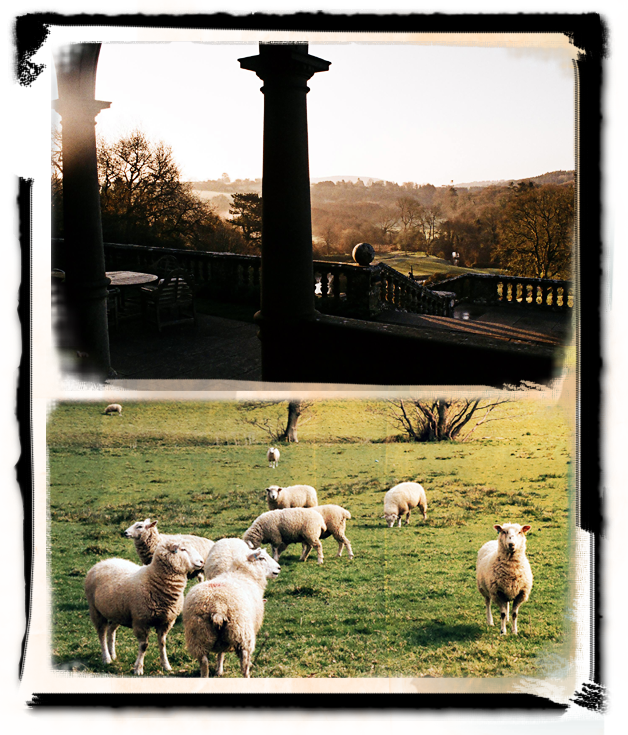
Settling into the cozy lobby area, I begin to unwind and soak in my surroundings. The décor is a cross between the eclectic style of the Arts and Crafts movement, and the grandness of its original neo-Elizabethan style. The latter is apparent in accents including its ornate fireplace, perfect for drying the dampness brought on by the rainy weather prominent in these parts. I perch myself on a ledge attached to a row of large paneled windows, and I peer out at the landscape. There’s no need to imagine how idyllic it might be to sit here and warm up with a cup of tea, the hot tea and scones are waiting for me upon arrival. The fudge brought to me later by a greeter, is the perfect sweet to end our impromptu afternoon tea break.
The process of relaxation is kicked into high gear when I visit the hotel’s spa. Their Sundari Pure Refresh Facial releases the tension in my face, smoothing out the stresses of city life with its Omega rich process — one created by Super Model Christy Turlington.
Utterly at ease and decompressed, it’s time for dinner and more luxury indulgence. The Edwardian Grill is an art deco inspired dining room, located on the ground floor of the hotel. One look at the menu and I’m ready to feast on my British dish: lamb with mint sauce. The dining room has a cozy vibe, so homey one almost forgets about the high volumes of money being spent here. The meal comes to an end, but my travel companion and I aren’t ready for the night to end quite yet, so we make are way next door to have a drink in the hotel’s parlor, finding a seat right next to the fire. Everyone at the castle seems to be on the same wavelength.
It’s the historic décor of Bovey Castle that captivates you, its surroundings and its atmosphere that calms you. It’s everything together that works to create the comfortable causal luxury that invites you to leave all stress behind, and enjoy quiet relaxation. If this is a castle-goers life — I’m saving up for a helicopter.








